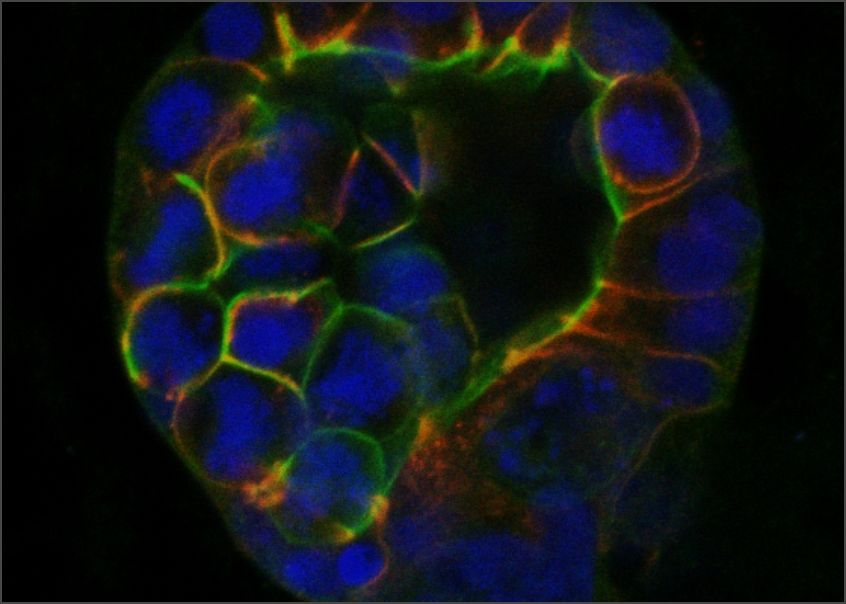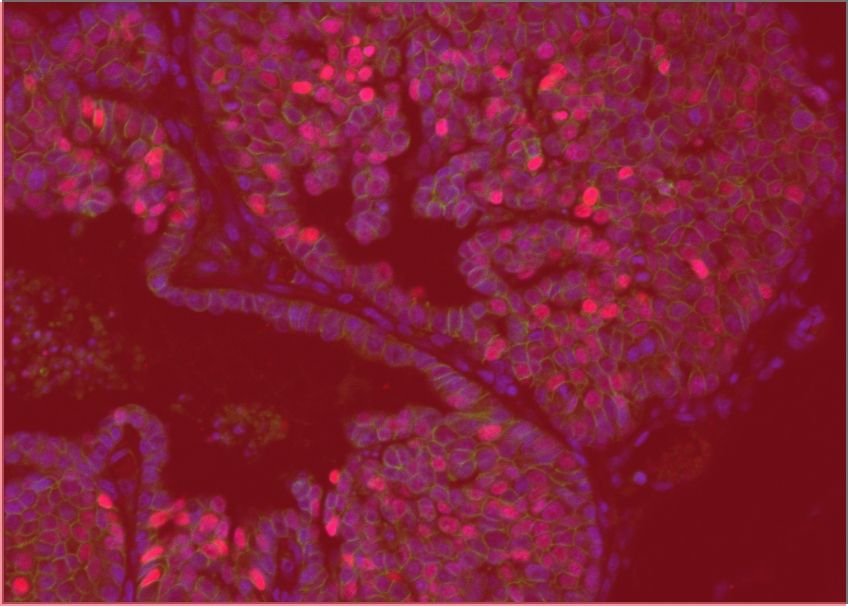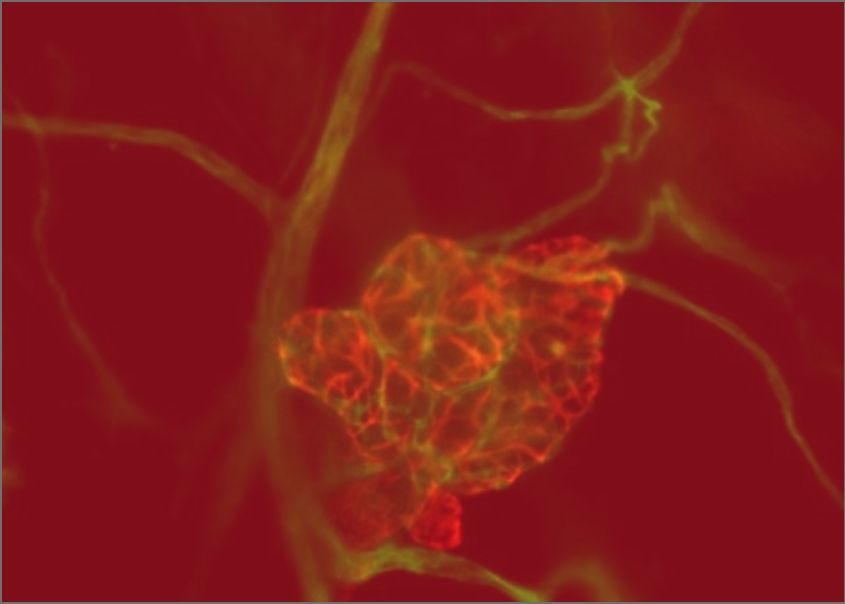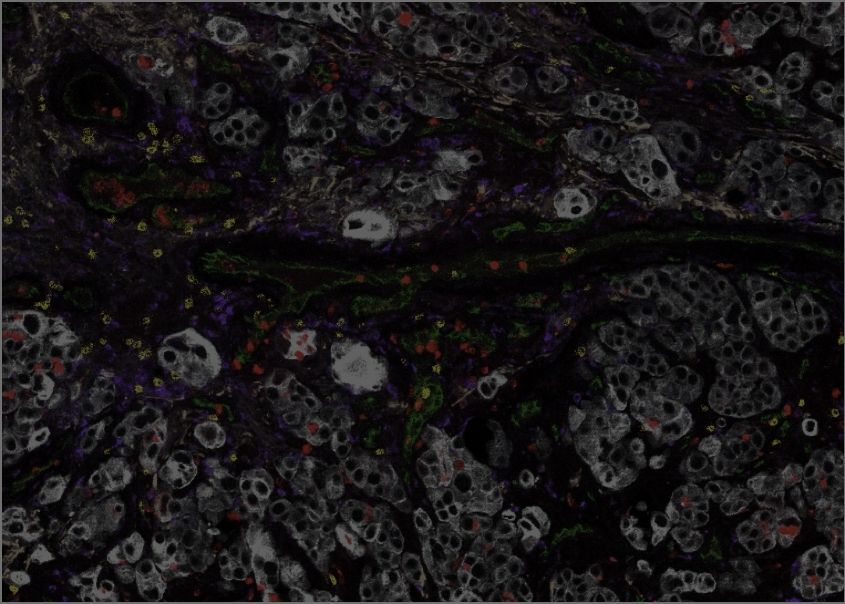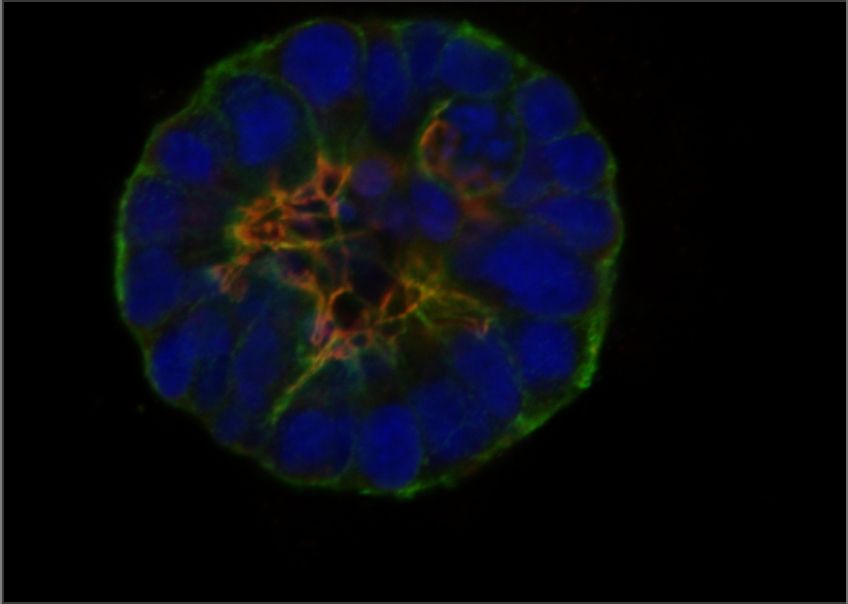
At a glance
The genetic programs encoded in our DNA are regulated and executed by diverse classes of ribonucleic acid (RNA) molecules. These include messenger RNA (mRNA), which conveys instructions from DNA that are decoded to produce proteins, the molecules that perform most functions essential for life. Several other types of non-coding RNA do not contain this information but work in concert to switch genes on and off and control the production of mRNA and proteins. GCI investigators have a long history of discovery in this field. Led by Nahum Sonenberg, who has been recognized by many of the most prestigious scientific awards in the world, their work has illuminated the fundamental mechanisms of RNA biology, established their critical roles in cancer and other diseases, and set the stage for the development of mRNA vaccines and other emerging therapies.
The potential applications of RNA-based strategies to cancer research and medicine are diverse and powerful. They include revolutionary genome editing technologies such as CRISPR-Cas9, the precision of which is provided by RNA molecules that target specific sites in the genome. Beyond vaccines, a wide range of innovative new RNA-based drugs will allow any gene product to be therapeutically exploited, including RNA molecules themselves and proteins that cannot be targeted by other classes of molecules. This approach thus eliminates the concept of the “undruggable” target, enabling the development of therapies targeting any genetic driver of cancer. Collectively, these technologies will allow activation or inactivation of any gene, replacement of defective proteins, and therapeutic editing of the genome at precise locations. GCI researchers continue to lead the way in revealing the central role of RNA biology in cancer, uncovering exciting new therapeutic targets, and advancing technologies that will profoundly change cancer treatment.
Areas of Focus
Team members
Our Discoveries
Proteins are produced using instructions contained in a type of RNA known as messenger RNA (mRNA) - a process referred to as mRNA translation. GCI scientists are pioneers in this field who have discovered how the initial steps of mRNA translation are controlled, revealing mechanisms that are essential to life and extremely important in cancer. Their work on mRNA translation and chemical modifications of mRNA that affect its translation and other properties has paved the way for the development of mRNA vaccines that changed the course of the COVID-19 pandemic.
Sonenberg, N., et al. A polypeptide in eukaryotic initiation factors that crosslinks specifically to the 5'-terminal cap in mRNA. Proceedings of the National Academy of Sciences of the USA. 1978 Oct;75(10):4843-7
Pelletier, J., et al. Internal initiation of translation of eukaryotic mRNA directed by a sequence derived from poliovirus RNA. Nature. 1988 Jul 28;334(6180):320-5.
Pause, A., et al. Insulin-dependent stimulation of protein synthesis by phosphorylation of a regulator of 5'-cap function. Nature. 1994 Oct 27;371(6500):762-7.
Svitkin, Y.V., et al. N1-methyl-pseudouridine in mRNA enhances translation through eIF2_-dependent and independent mechanisms by increasing ribosome density. Nucleic Acids Research. 2017 Jun 2;45(10):6023-6036
World-leading research on RNA biology by GCI investigators is leading to novel cancer therapies. Key discoveries include classes of naturally occurring compounds that target a protein called eukaryotic initiation factor 4A (eIF4A), which is a critical regulator of mRNA translation that is dysregulated in cancer. These molecules are potent inhibitors of mRNA translation initiation in cancer cells and show very promising activity in many pre-clinical cancer models. In partnership with leading biotech and pharmaceutical companies, our scientists are bringing new drugs that target the aberrant mRNA translational programs of cancer to the clinic to treat metastatic breast tumours and other forms of cancer.
Naineni SK, et al. Functional mimicry revealed by the crystal structure of an eIF4A:RNA complex bound to the interfacial inhibitor, desmethyl pateamine A. Cell Chem Biol. 2021 Jun 17;28(6):825-834.e6. doi: 10.1016/j.chembiol.2020.12.006. PMID: 33412110
Naineni SK, et al. A comparative study of small molecules targeting eIF4A. RNA. 2020 May;26(5):541-549. doi: 10.1261/rna.072884.119. PMID: 32014999
Robichaud, N. et al, Translational control in the tumor microenvironment promotes lung metastasis: Phosphorylation of eIF4E in neutrophils. Proceedings of the National Academy of Sciences of the USA. 2018 Mar 6;115(10):E2202-E2209.
https://standuptocancer.ca/the-science/metastatic_breast_cancer_dream_team/
GCI investigators have pioneered the study of non-coding RNA, revealing key aspects of the fundamental biology of these crucial genetic regulators and demonstrating their involvement in cancer and other diseases. With emerging technologies for RNA-based drug design and delivery, this important research has expanded the toolbox of RNA therapeutics and is poised for real-world impact.
Duchaine, T.F., et al. Functional proteomics reveals the biochemical niche of C. elegans DCR-1 in multiple small-RNA-mediated pathways. Cell. 2006 Jan 27;124(2):343-54.
Mathonnet, G., et al. MicroRNA inhibition of translation initiation in vitro by targeting the cap-binding complex eIF4F. Science. 2007 Sep 21;317(5845):1764-7.
Donayo, A.O., et al. Oncogenic Biogenesis of pri-miR-17_92 Reveals Hierarchy and Competition among Polycistronic MicroRNAs. Molecular Cell. 2019 Jul 25;75(2):340-356.e10.
Lewis, A., et al. A Family of Argonaute-Interacting Proteins Gates Nuclear RNAi. Molecular Cell. 2020 Jun 4;78(5):862-875.e8
The discovery of the RNA-guided genome editing system known as CRISPR (Clustered Regularly Interspaced Short Palindromic Repeats) revolutionized the biological sciences and began a new era of high precision genetic engineering. The GCI has developed technology for systematically inactivating each gene in the genome using CRISPR, allowing the vulnerabilities of cancer cells to be uncovered through functional genetic screening. GCI investigators are also developing innovative new ways to deliver the molecular machinery required for genome editing to specific cell types in vivo, opening the door to a new type of RNA-based therapy for cancer and other diseases.
Robert, F., et al. CRISPR/Cas9 Editing to Facilitate and Expand Drug Discovery. Curr Gene Ther . 2017;17(4):275-285.
Chu, J., et al. CRISPR-Mediated Drug-Target Validation Reveals Selective Pharmacological Inhibition of the RNA Helicase, eIF4A. Cell Reports. 2016 Jun 14;15(11):2340-7.
Chen, G. et al. A biodegradable nanocapsule delivers a Cas9 ribonucleoprotein complex for in vivo genome editing. Nature Nanotechnology. 2019 Oct;14(10):974-980.



